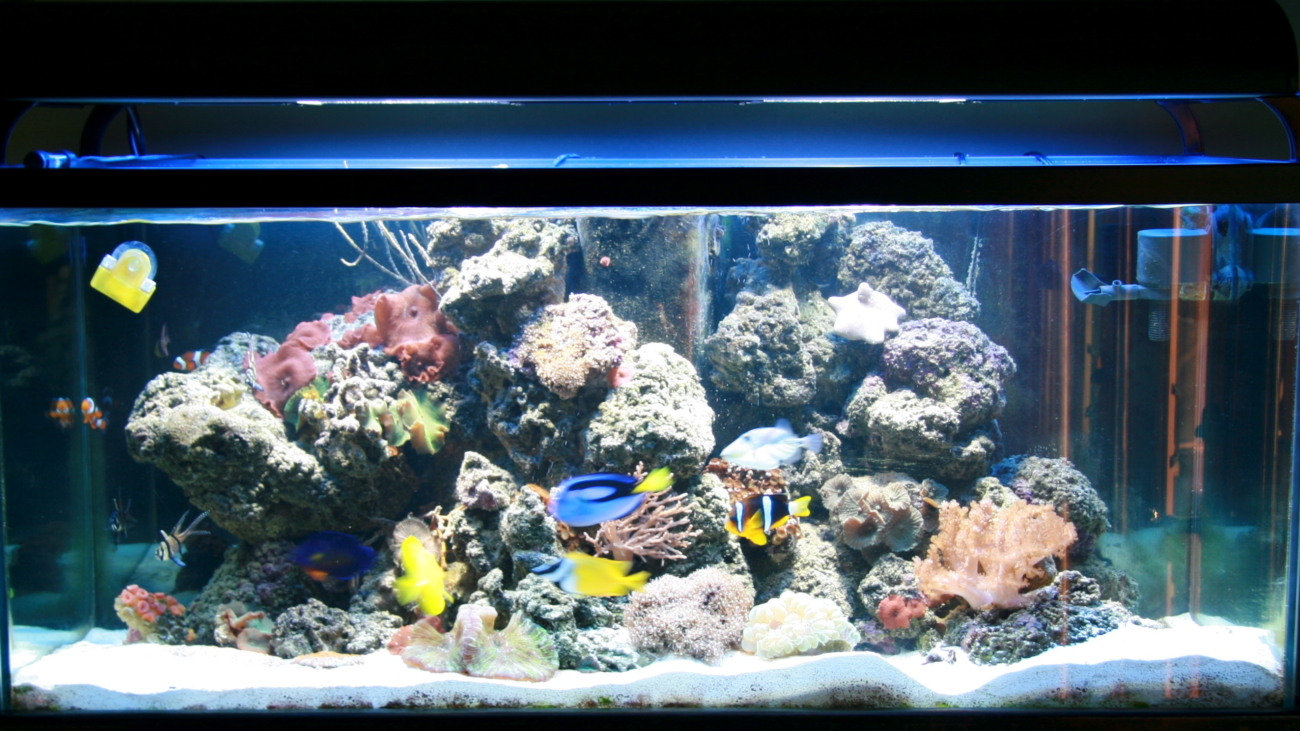The COVID-19 pandemic has turned the world upside down in a very short time, and all of us at DanMatt Media wish you health and safety during these crazy times.
For my part, in addition to juggling work and taking care of my young kids, I’ve been using this forced stay-at-home to bring my old reef aquarium back to life. I’ve purchased a new reef lighting system and several new corals, and I thought I’d use this month’s blog post to address a critical care component of all marine corals. That being nutrient export.
What is nutrient export?
Simply put, nutrient export is the removal of dissolved organic compounds from the water. You can think of this as filtration, etc. Everything you add to the tank, whether fish food, coral food, or supplements, has an adverse effect on the water quality. When enough organic compounds and nutrients build up in the tank, water quality begins to diminish and fish and corals suffer. We have to get those dissolved organic compounds out of the water, but how to do it?
Protein skimming. Your primary means of nutrient export
When it comes to removing dissolved organic compounds, a protein skimmer is your best friend. These vital pieces of equipment are wonderful at removing organic sludge from your aquarium. You can expect to spend $200 to $300 on a quality hang-on protein skimmer, and $400+ on a larger in-sump model. Don’t skimp on quality in favor of an inferior, less expensive product. Buy a good skimmer, keep it well maintained, and you’d be amazed what it can pull out of your tank on a daily basis.
Water changes. Your secondary means of nutrient export
Another effective way to lower your nitrates and organic compounds is through water changes. Essentially, a water change involves taking aged saltwater out of the aquarium and replacing it with newly mixed saltwater. Frequent partial water changes will lower your nitrates and dissolved organic compounds, and provide a good way to re-introduce essential trace elements like calcium and magnesium that have been depleted by corals. I change 10% of my reef aquarium water every 10-14 days.
A word about adding organic compounds to the water in the first place
While it makes sense to remove as many dissolved organics as possible, it makes even more sense to avoid adding those compounds to your tank in the first place. Fish and corals need to eat, but how you go about feeding them can make a huge difference in how much pollution you’re putting into your aquarium.
I would ALWAYS suggest that you target feed your corals, rather than simply adding coral food to the tank en masse. Target feeding your corals, with the pumps turned off, it a great way to get them the food they need without polluting your tank in the process.
Hopefully these tips help to keep your reef aquarium healthy and thriving.

